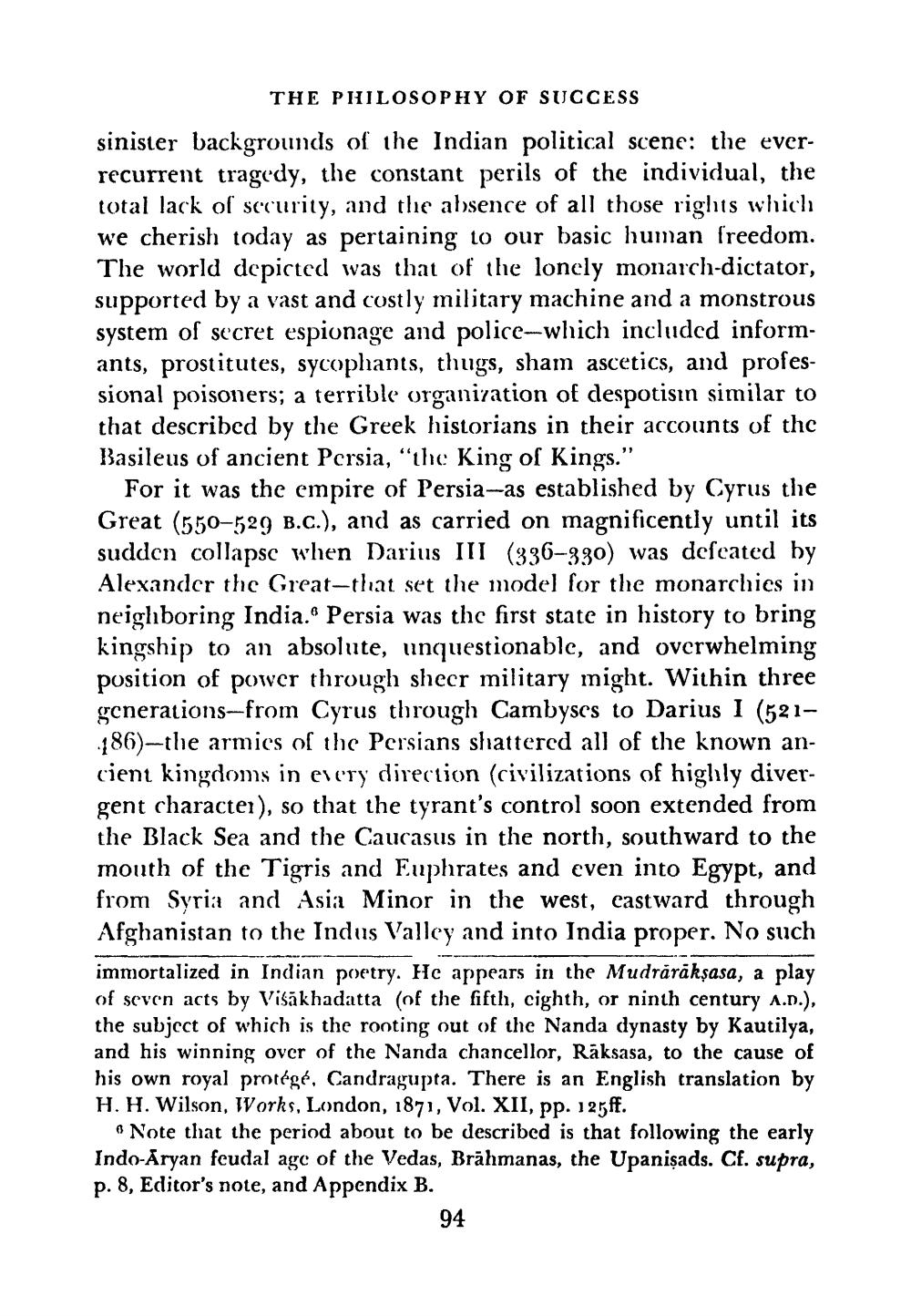________________
THE PHILOSOPHY OF SUCCESS
sinister backgrounds of the Indian political scene: the everrecurrent tragedy, the constant perils of the individual, the total lack of security, and the absence of all those rights which we cherish today as pertaining to our basic human freedom. The world depicted was that of the lonely monarch-dictator, supported by a vast and costly military machine and a monstrous system of secret espionage and police-which included informants, prostitutes, sycophants, thugs, sham ascetics, and professional poisoners; a terrible organization of despotism similar to that described by the Greek historians in their accounts of the Basileus of ancient Persia, "the King of Kings."
For it was the empire of Persia-as established by Cyrus the Great (550-529 B.C.), and as carried on magnificently until its sudden collapse when Darius III (336-330) was defeated by Alexander the Great-that set the model for the monarchies in neighboring India. Persia was the first state in history to bring kingship to an absolute, unquestionable, and overwhelming position of power through sheer military might. Within three generations-from Cyrus through Cambyses to Darius I (521186)-the armies of the Persians shattered all of the known ancient kingdoms in every direction (civilizations of highly divergent character), so that the tyrant's control soon extended from the Black Sea and the Caucasus in the north, southward to the mouth of the Tigris and Euphrates and even into Egypt, and from Syria and Asia Minor in the west, eastward through Afghanistan to the Indus Valley and into India proper. No such immortalized in Indian poetry. He appears in the Mudräräkṣasa, a play of seven acts by Visakhadatta (of the fifth, eighth, or ninth century A.D.), the subject of which is the rooting out of the Nanda dynasty by Kautilya, and his winning over of the Nanda chancellor, Raksasa, to the cause of his own royal protégé. Candragupta. There is an English translation by H. H. Wilson, Works, London, 1871, Vol. XII, pp. 125ff.
Note that the period about to be described is that following the early Indo-Aryan feudal age of the Vedas, Brahmanas, the Upanisads. Cf. supra, p. 8, Editor's note, and Appendix B.
94




